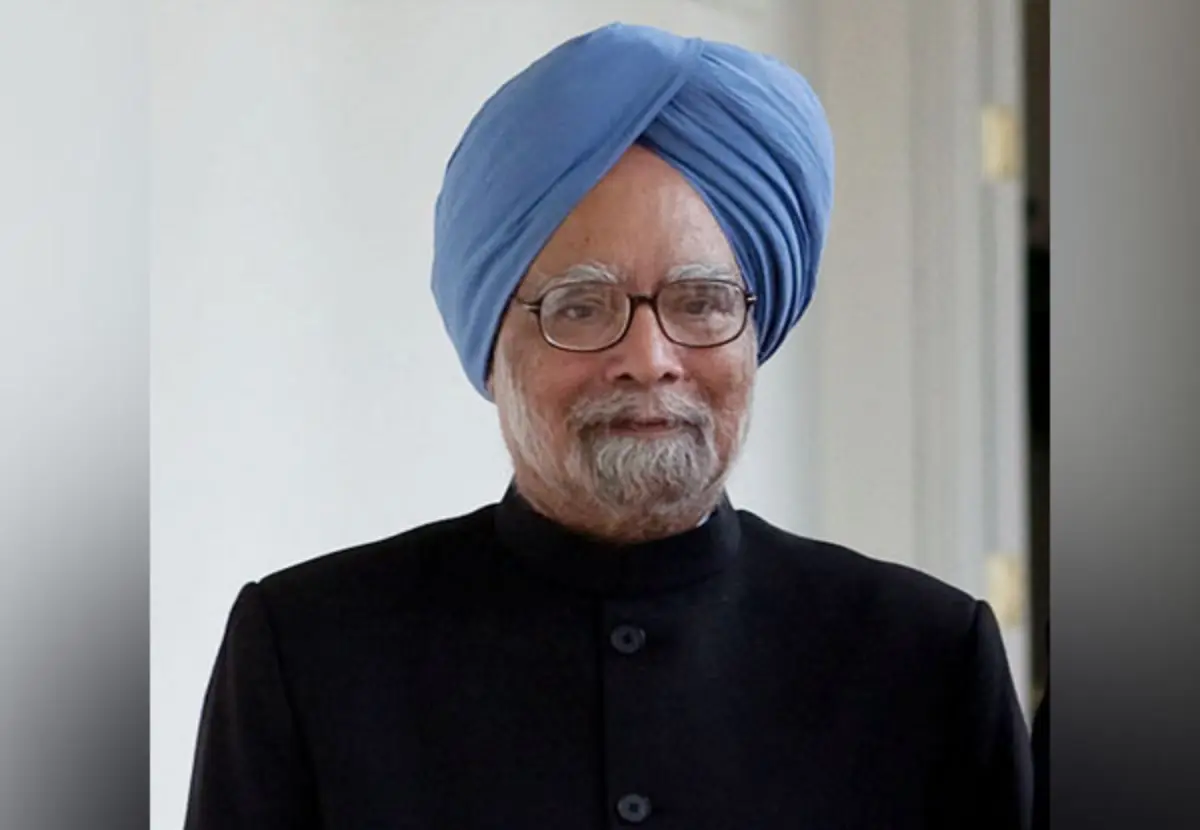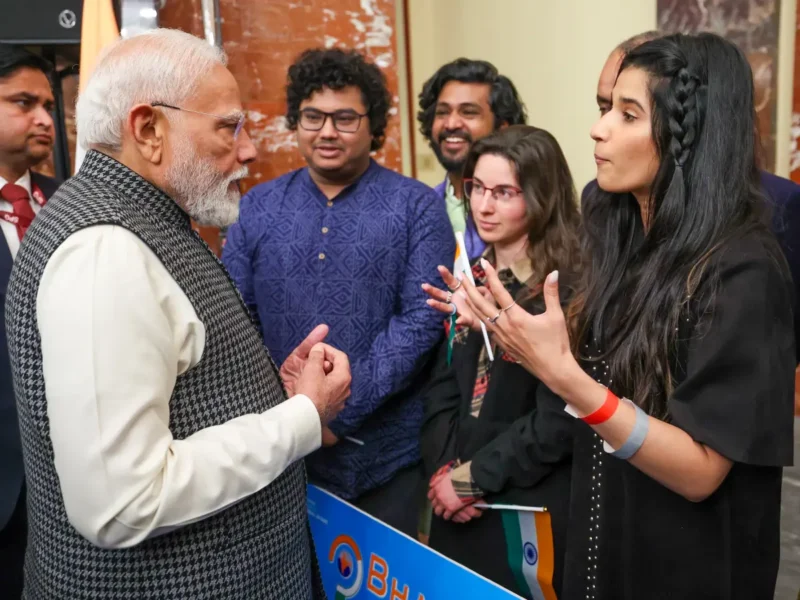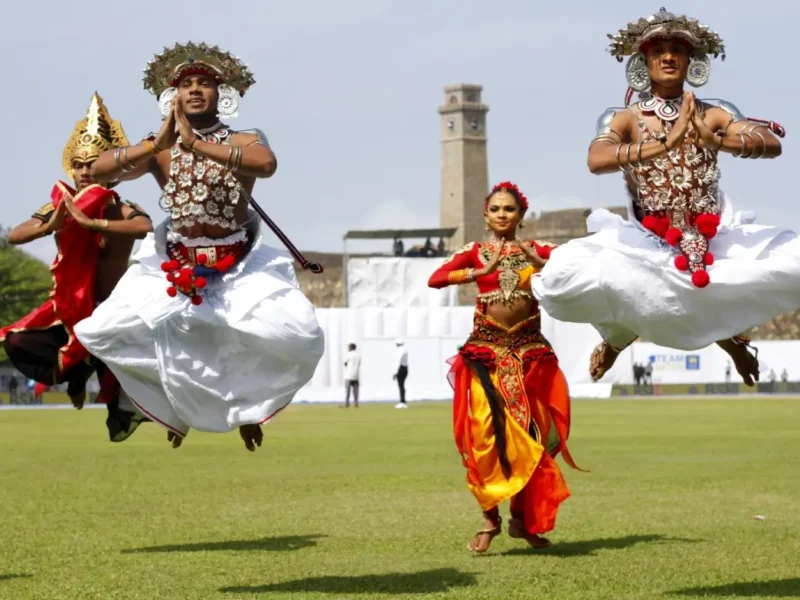Dr.Singh – An Affable, Visionary Leader With Strong Resolve
NEW DELHI, (ANI) – Former Prime Minister Dr Manmohan Singh, was an acclaimed thinker, economist and scholar who ushered in a comprehensive policy of economic reforms and steered the country for 10 years as the head of Congress-led UPA government during which India witnessed a high growth rate.
Known for his diligence, accessibility and unassuming demeanour, Manmohan Singh’s academic credentials were burnished by his long years in government during which he served in various key decision-making positions. He was also the Governor of the Reserve Bank of India. His government pushed for rights-based laws to empower citizens and inclusive growth to bring people out of poverty.
Before assuming office as India’s fourteenth Prime Minister in May 2004, Manmohan also held several political responsibilities. He served as a member of Rajya Sabha from 1991 and Leader of the Opposition between 1998 and 2004. His 33-year-long tenure in Rajya Sabha ended in April this year.
Manmohan Singh, who was the first person from the Sikh community to become Prime Minister, took the oath of office for a second term on May 22, 2009.
Born on September 26, 1932, in a village in the Punjab province of undivided India, Manmohan Singh was held in high regard across party lines and was held in high esteem globally. He received honorary degrees from many universities including the Universities of Cambridge and Oxford. Soft-spoken and affable, he rose from humble origins to the post of Prime Minister.
When he was made Finance Minister in 1991 by then Prime Minister PV Narasimha Rao, India was facing economic difficulties and had faced balance of payment crisis.
With political opposition to his economic reforms, Manmohan Singh showed steely determination and took steps to devalue the rupee, bring down taxes and encourage foreign investment.
The steps helped India tackle entrenched economic problems and register high rates of growth which paved the way for a booming middle-class, crores of people coming out of poverty and Mamnohan Singh’s years as Finance Minister became turning point in the economic history of independent India.
He spent five years between 1991 and 1996 as India’s Finance Minister and his role in ushering in a comprehensive policy of economic reforms is recognized worldwide. In the popular view of those years in India, that period is inextricably associated with the persona of Dr. Singh.
In July 1991, Manmohan Singh ended his budget speech with the words: “No power on earth can stop an idea whose time has come. I suggest to this august House that the emergence of India as a major economic power in the world happens to be one such idea.” This was the beginning of his idea of India and Manmohan became famous as the architect of economic reforms.
The economic trajectory set by Manmohan Singh as Finance Minister and PV Narasimha Rao as Prime Minister was largely followed by the subsequent governments.
Manmohan Singh had emerged on the national and global scene as an innovative thinker and administrator dedicated to public service and after the Bharatiya Janata Party-led NDA government suffered a shock defeat in the 2004 Lok Sabha polls, he was given the leadership of the Congress-led United Progressive Alliance (UPA) government.
There was clamor within Congress for then Congress president Sonia Gandhi to take role of Prime Minister but she declined it. The BJP had opposed her taking the role of Prime Minister raking up the issue of her foreign origins. Sonia Gandhi recommended Manmohan Singh for the key role.
Apart from taking steps for high and inclusive economic growth, Manmohan Singh showed his political skills as he went ahead with Indo-US nuclear deal despite strong political opposition and Left parties withdrawing support to his government.
Manmohan Singh government had entered into negotiations with the United States in 2005 in view of India’s growing energy demands. The deal also helped revamp India’s relationship with the United States which has now expanded across dimensions.
With Manmohan Singh as Prime Minister, Congress increased its number of seats in the May 2009 Lok Sabha polls.
However, the later part of the second UPA government saw allegations of corruption with the opposition accusing the ruling coalition of “policy paralysis”. With Congress keen on pushing Rahul Gandhi, son of Sonia Gandhi, in the leadership role, Manmohan Singh said in early 2014 that he would not seek a third term as prime minister in the 2014 Lok Sabha polls.
He left office on May 26 as Narendra Modi took oath as Prime Minister as head of the coalition government led by the BJP.
Congress leaders state that under Manmohan Singh’s stewardship, “India witnessed the highest growth rate in its history, averaging at 7.7 per cent”.
With Sonia Gandhi heading the National Advisory Council, the government pushed for rights-based legislations including right to food, right to education, right to work and the right to information.
Manmohan Singh completed his Matriculation examinations from the Punjab University in 1948. His academic career took him from Punjab to the University of Cambridge, UK, where he earned a First Class Honours degree in Economics in 1957.
He followed this with a D. Phil in Economics from Nuffield College at Oxford University in 1962. His book, “India’s Export Trends and Prospects for Self-Sustained Growth” [Clarendon Press, Oxford, 1964] was an early critique of India’s inward-oriented trade policy.
Manmohan Singh was on the faculty of Punjab University and the Delhi School of Economics. He had a brief stint at the UNCTAD Secretariat as well, during these years. This presaged a subsequent appointment as Secretary General of the South Commission in Geneva between 1987 and 1990.
In 1971, he joined the Government of India as Economic Advisor in the Commerce Ministry. This was soon followed by his appointment as Chief Economic Advisor in the Ministry of Finance in 1972.
Among the many positions that Dr Singh held were Finance Secretary, Deputy Chairman of the Planning Commission; Advisor of the Prime Minister; and Chairman of the University Grants Commission.
A recipient of India’s second highest civilian honor, the Padma Vibhushan in 1987, Manmohan Singh was honored with several awards.
He was conferred the Asia Money Award for Finance Minister of the Year (1993 and 1994); the Euro Money Award for Finance Minister of the Year (1993), the Adam Smith Prize of the University of Cambridge (1956); and the Wright’s Prize for Distinguished Performance at St. John’s College in Cambridge (1955).
Also Read: Manmohan Singh, India’s Economic Architect, Dies Aged 92





Vijay K Rohatgi
/
We lost an honest, great man. I was in his fist class in 1961-62 at DelhiSchool of Economics. He taught Current Economic Problems. I have to admit I had trouble in that course since there was no book, no references, no notes. Nevertheless he did a fine job. He was well liked by students and other faculty members, He put India on path to liberalization of Econimoic Policy when he was first appointed as the Finance Minister. Unfortunatlely he was not a politician and had little success as India’s Prime Minister. RIP Dr. Manmohan Singh.
December 26, 2024